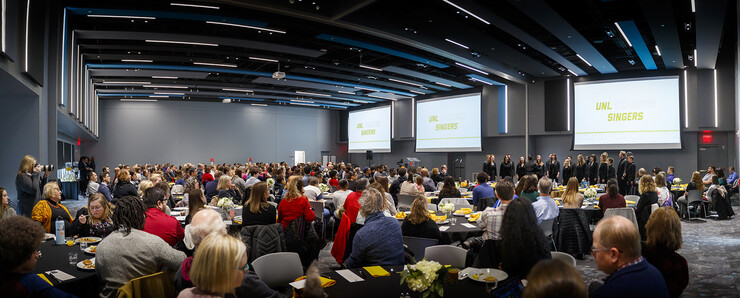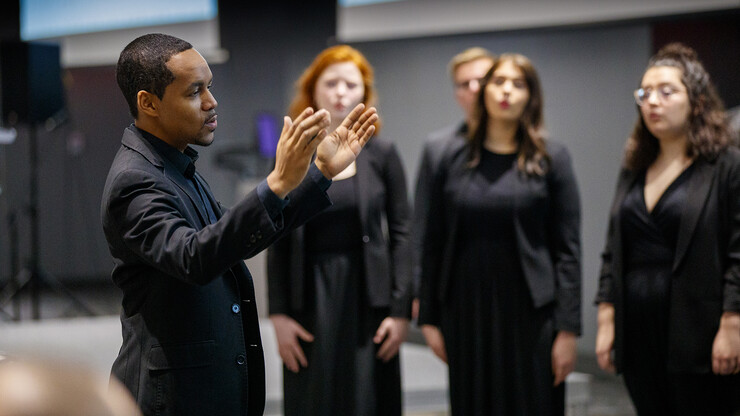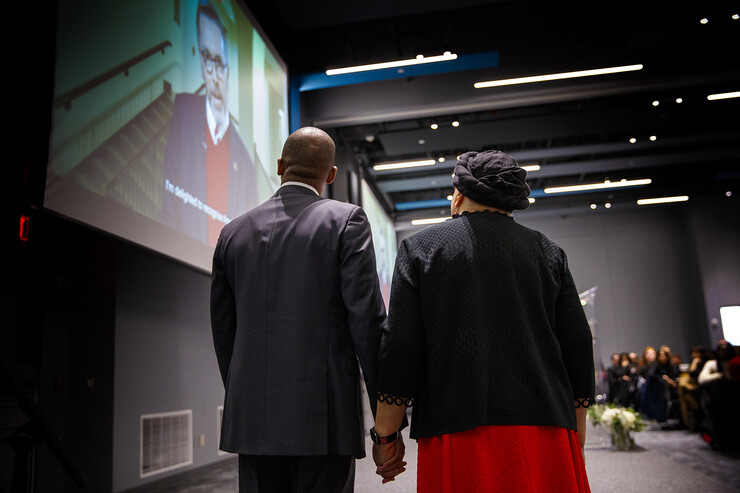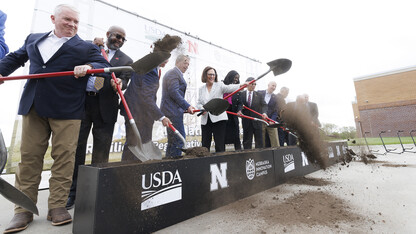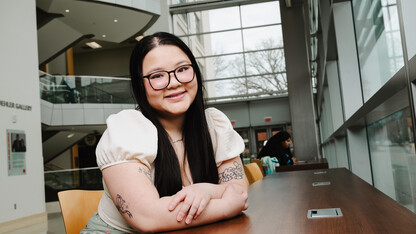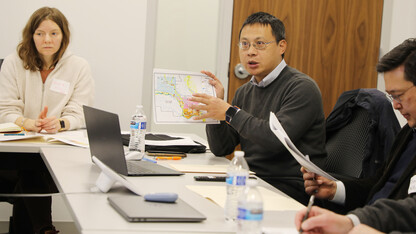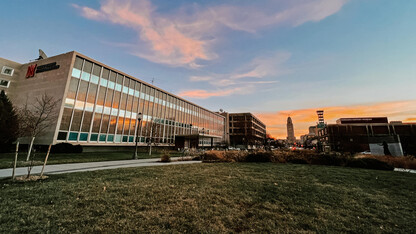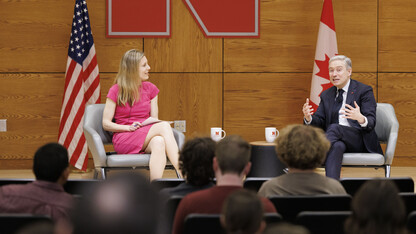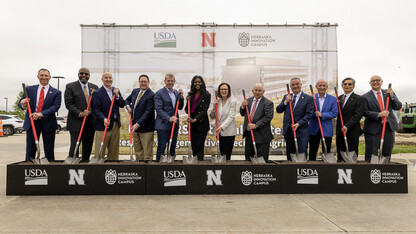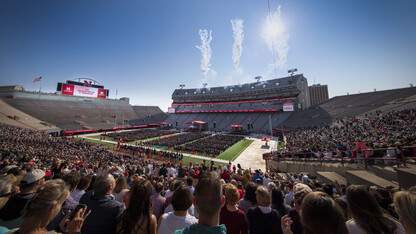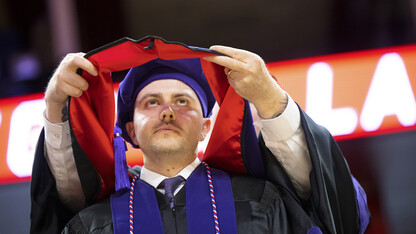· 5 min read
Huskers challenged to become guardians of MLK’s legacy
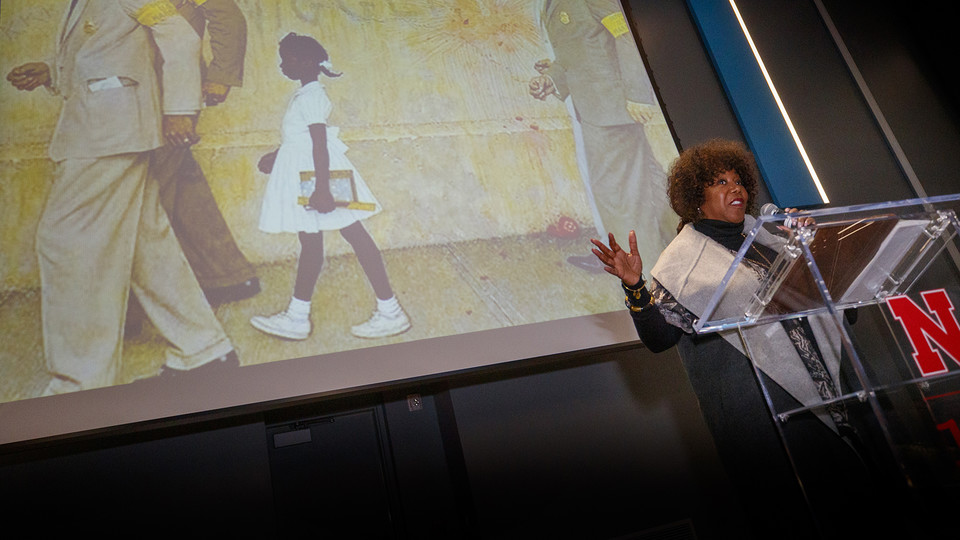
Life is often defined by individual perspective, but can be shaped by a willingness to stand up and look beyond the superficial.
That was the key message delivered by civil rights icon Ruby Bridges during the University of Nebraska–Lincoln’s Martin Luther King Jr. brunch on Jan. 22. Bridges — who, as a 6-year-old in 1960, became one of the first black children to integrate New Orleans’ all-white public school system — took the 275-plus in attendance on a journey using her unique lens, outlining the need to look beyond perfunctory details like skin tone, religion and sexual orientation.
“People say that I was so brave, that I’m a hero and had so much courage,” Bridges said. “Let me set the record straight. I was 6 years old. What protected me was the innocence of a child. I didn’t really know anything about racism.”
Bridges was one of six New Orleans girls who earned passing marks on a test designed to keep blacks from gaining admission to an all-white school. That feat, amplified by related attention she received, skewed Bridges’ concept of what was actually happening.
“I had lots of new things ready for that first day, which was something that had not happened when I went to kindergarten,” Bridges said. “And, neighbors came out, some even helped get me ready for school.
“I thought that test made me so smart that I was going straight from kindergarten to college.”
Four U.S. Marshals — all wearing yellow arm bands — arrived and escorted Bridges and her mother to the school. When they arrived, a throng of people — mostly whites, many shouting racist comments, others brandishing symbols of hate, including a coffin with an African-American child inside — waited.
“People were out screaming and shouting, throwing things,” Bridges said. “There were policemen on horseback. There were people with cameras in front of the school.
“I was accustomed to Mardi Gras and thought we had stumbled into a parade.”
Flanked by the U.S. Marshals, Bridges and her mother were quickly rushed into the school — an iconic image captured in a Norman Rockwell painting. School was canceled shortly after the arrival as parents pulled students out of class.
The second day — after a greeting from a larger crowd and another escorted entry — Bridges found herself the lone student in a classroom paired with a teacher, Mrs. Barbara Henry.
“I looked at her and thought she was white and I had never saw a white teacher before,” Bridges said. “I wondered why she didn’t look like the others who were outside, angry and screaming.”
As white parents refused to allow their children to be in the same room as a black student, Bridges had lots of one-on-one time with Henry. She quickly learned that not all white faces were a mask of hatred.
“Mrs. Henry did everything you could imagine to make that classroom fun,” Bridges said. “I knew if I could get past the crowd and into that classroom, it was going to be a good day.”
Neither teacher or student ever missed a day of class, working together on all the important things a first-grader must know to advance. The lessons also led Bridges to accept one of the primary pillars of Dr. Martin Luther King Jr.’s message.
“That year, I learned the lesson that Dr. King tried to teach all of us — that we should never judge a person by the color of their skin, but by the content of their character,” Bridges said. “You have to get close enough to see their heart.
“It’s something I learned with my ABCs. How we still don’t get that today, it boggles my mind.”
Bridges challenged the university community to become guardians of Dr. King’s legacy, to step up and look beyond descriptions that cause division.
“All too often people try to put Dr. King’s life and work in a box — that he was trying to help black people to the exclusion of whites,” Bridges said. “But, his teachings are not just about black and white. He was focused on the ethical challenge of right and wrong — a battle between good and evil.”
She said people should focus on providing justice and showing love and mercy toward others whenever possible.
“Great change rarely comes from the top down. It’s almost always from the bottom up, yet too many of us sit around waiting for it to happen,” Bridges said. “Imagine what this place will be like in 10 years if, after we leave this room today, each of you refuses to go back to business as usual.”
